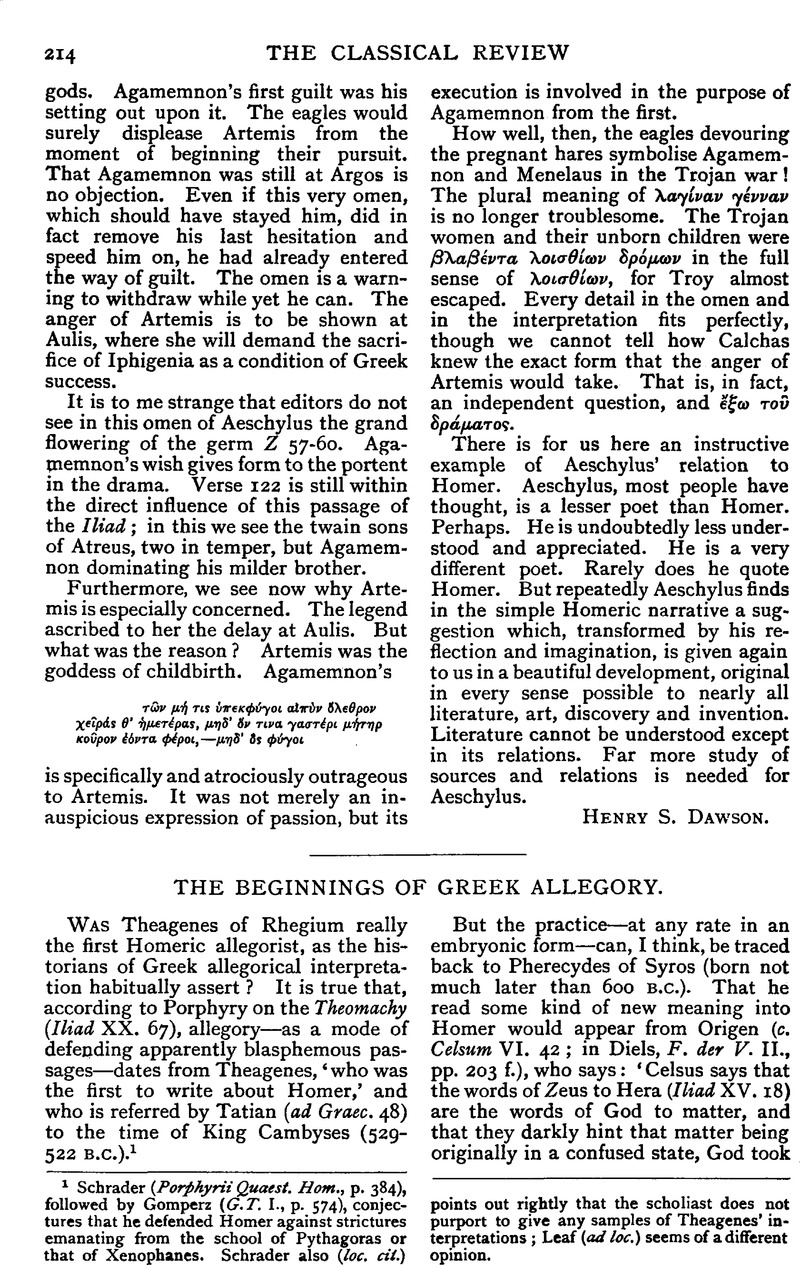Published online by Cambridge University Press: 27 October 2009

page 214 note 1 Schrader (Porphyrii Quaest. Hom., p. 384), followed by Gomperz (G.T. I., p. 574), conjectures that he defended Homer against strictures emanating from the school of Pythagoras or that of Xenophanes. Schrader also (loc. cit.) points out rightly thatthe scholiast does not purport to give any samples of Theagenes' interpretations; Leaf (ad loc.) seems of a different opinion.
page 215 note 1 My case is supported by Diels' suggestion ὑπονοσαντῄσαντα(allegorically interpreted) for νοῄσαντα.
page 215 note 2 Pherecydes also indulged in the fanciful etymology which was the faithful handmaid of allegory in later times. Diogenes Laertius (I. 119) quotes a sentence from him which turns Κρ;voς into Χρ;νοσ, and apparently derives γ from γρας (cf. Zeller, Pre-Socratic Philosophy I., p. 90, n. 3). Χρνος, whatever its meaning, is something more definite than the father of Zeus; and the changeis an allegory in the Greek sense (see Plutarch, 2, 363d).
page 215 note 3 Cf. Burnet, E.G.P., p. 217: Empedocles' verse is not much harder to interpret philosophically than Heraclitus' prose.
page 215 note 4 Compare fr. 94 (Diels) with Iliad XIX. 418. In fr. 32 (Diels) he evidently uses etymology (a play on supposed derivation of Zeus from ζν).
page 215 note 5 The fact that Anaxagoras (Diog. Laert. II. 11) is stated to have been ‘the first to declare that the poetry of Homer is on the subject of virtue and justice,’ and Metrodorus, his disciple, the first to work out the suggestion in an allegorical system, leaves us with the suspicion that the work of Theagenes cannot have been of great importance. He probably confined himself to the obvious interpretations of e.g. Apollo, Hephaestus, Poseidon, in the Theomachy.